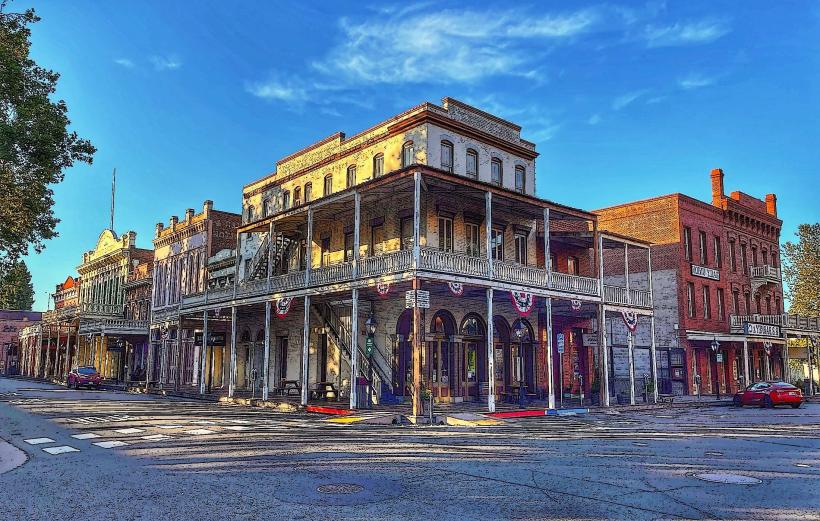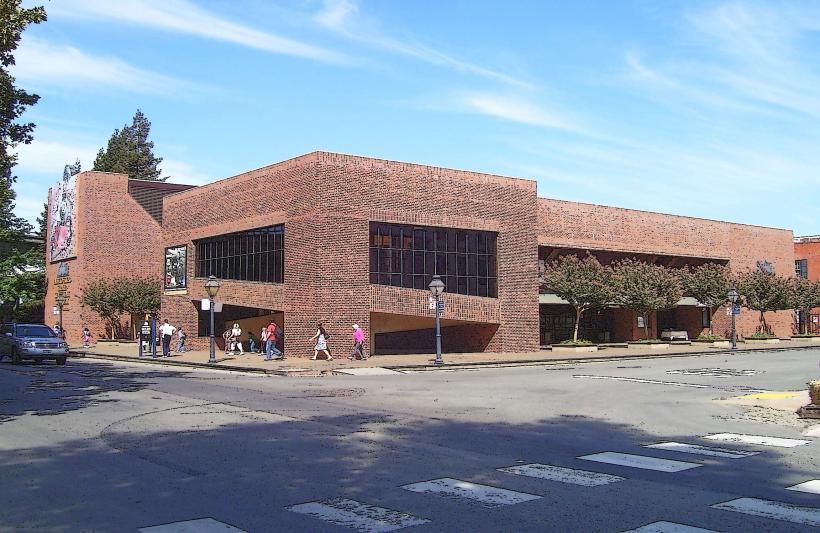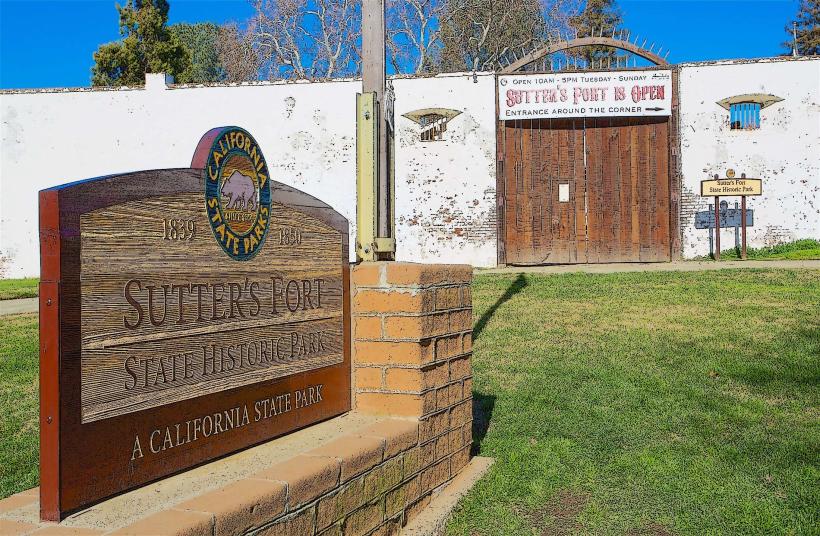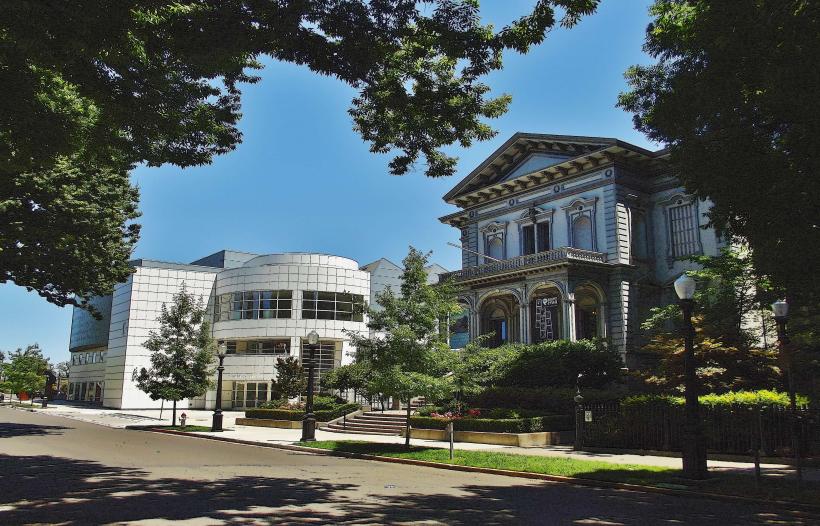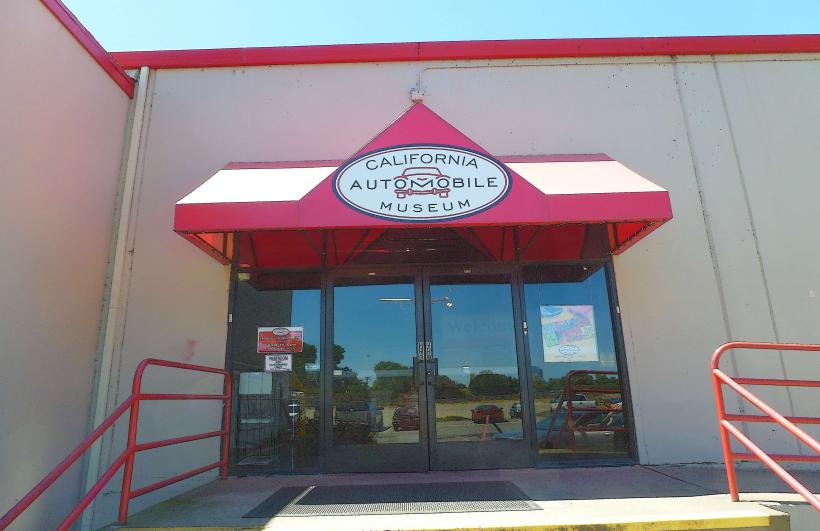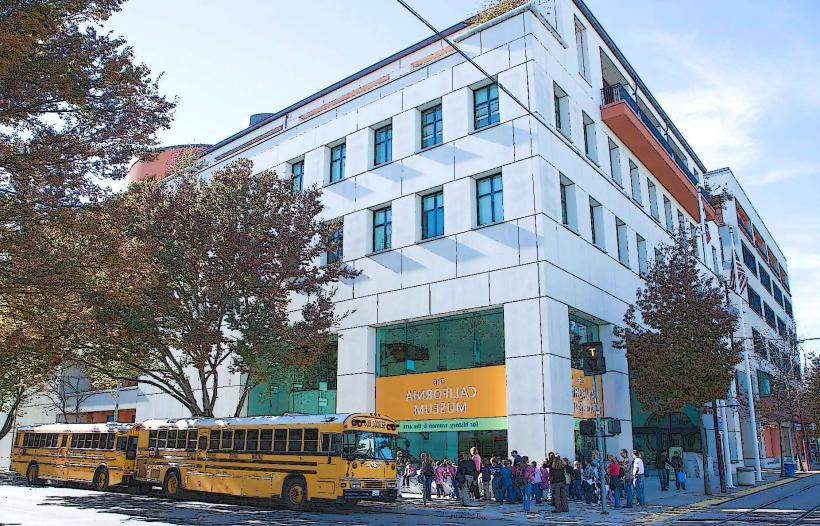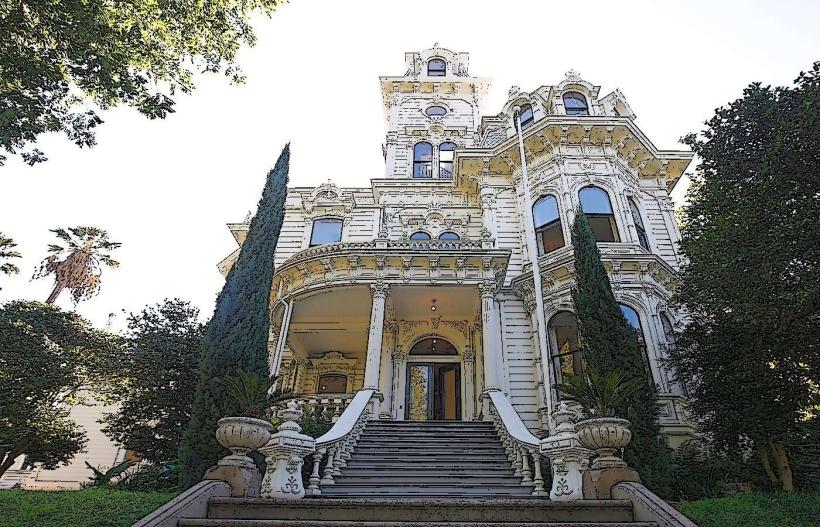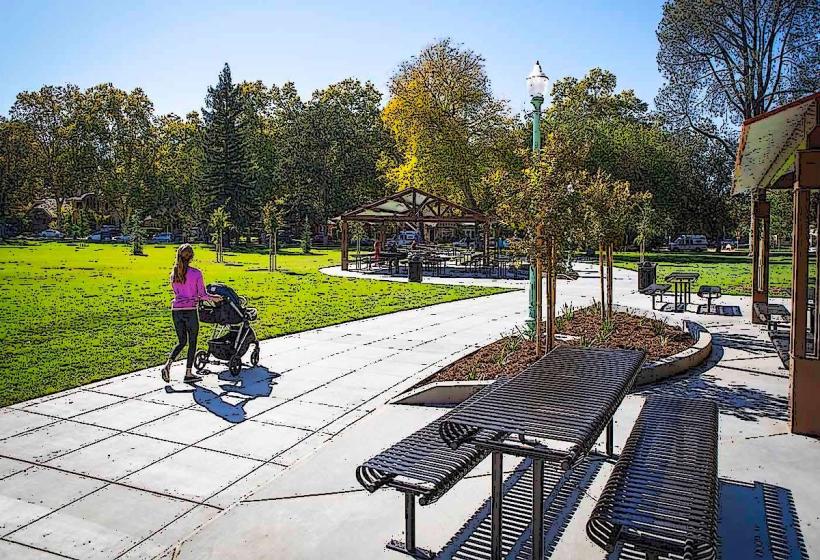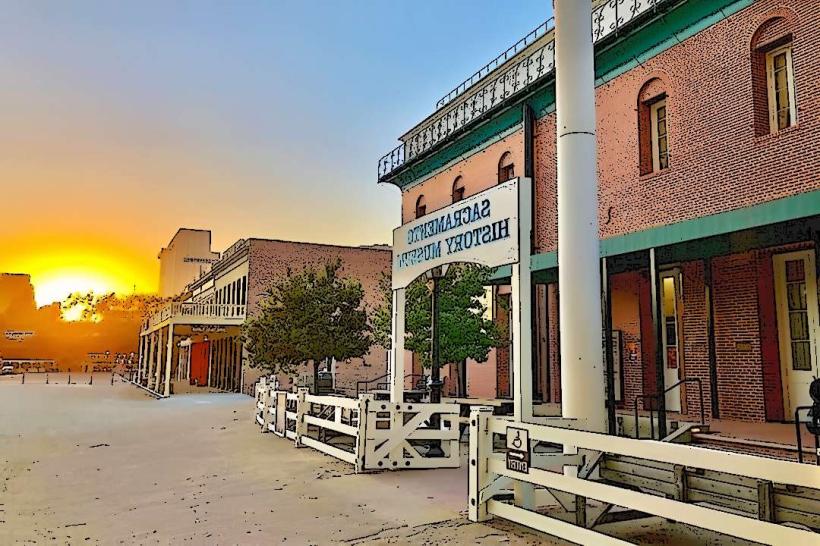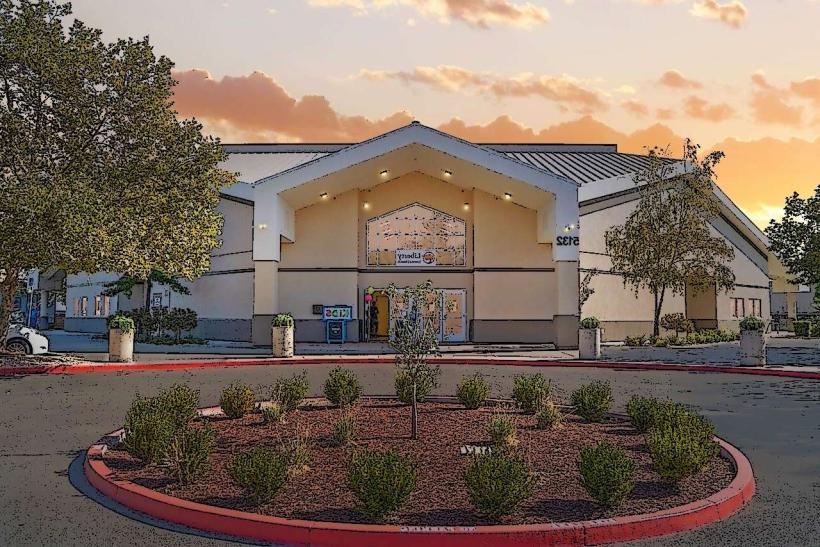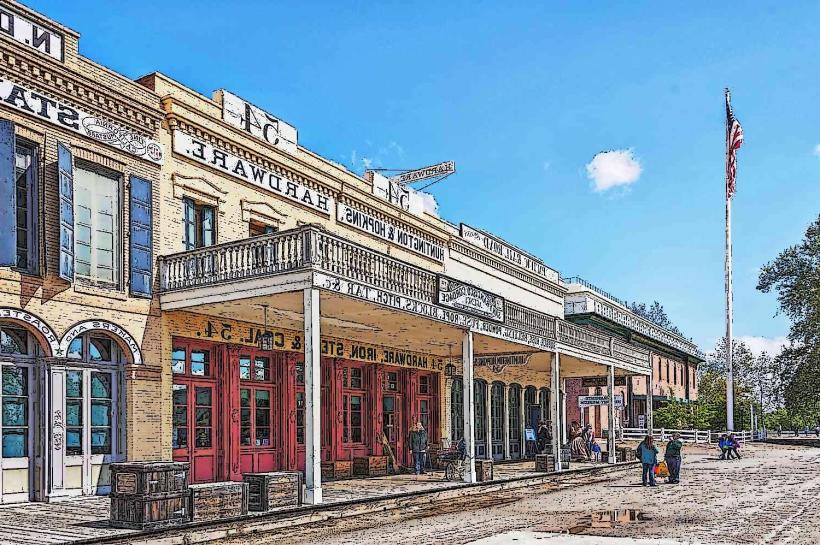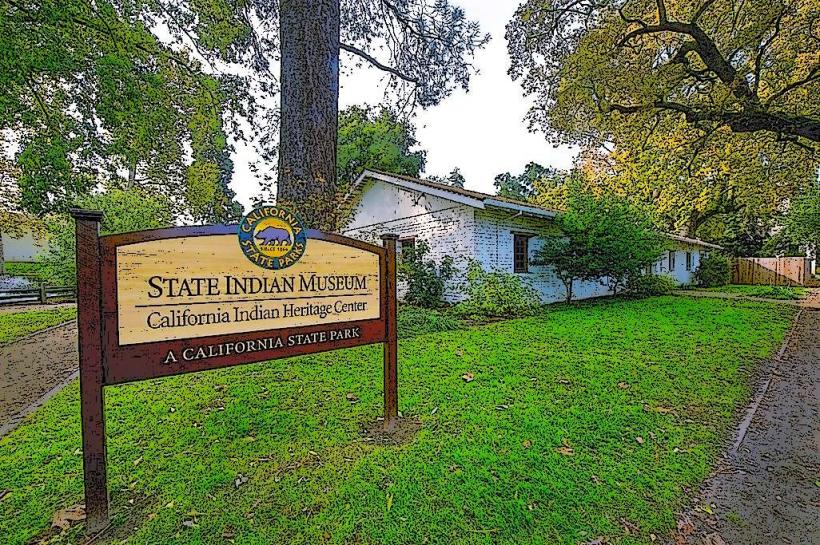Information
Landmark: Sacramento Theatre CompanyCity: Sacramento
Country: USA California
Continent: North America
Sacramento Theatre Company, Sacramento, USA California, North America
The Sacramento Theatre Company (STC) was a cornerstone of performing arts in Northern California and played a crucial role in shaping the cultural identity of Sacramento for over 80 years. Its legacy is marked by a deep commitment to professional theatre, actor training, community engagement, and educational outreach.
Origins and Historical Development
Founded in 1942 as the Sacramento Civic Repertory Theatre, STC was originally established to entertain American troops during World War II. It began performing in a makeshift venue but quickly gained recognition for its high-quality productions.
In 1949, the company moved into the Eaglet Theatre, a reproduction of the historic 1849 Eagle Theatre—the first permanent theatre building in California, originally used during the Gold Rush. This symbolic connection to California’s theatrical roots helped STC anchor itself as a serious cultural institution.
Over the years, STC evolved into a fully professional regional theatre, recognized as one of the oldest continually operating theatre companies in the western United States.
Facilities and Venue: The H Street Theatre Complex
STC eventually took residence in the H Street Theatre Complex, located near Sacramento's Midtown and downtown districts. The complex included several versatile venues:
Main Stage (292 seats): The primary performance space for large-scale, classic, and modern plays, musicals, and Shakespearean works.
Pollock Stage (85 seats): A black box-style theatre used for contemporary works, student performances, and experimental productions.
Cabaret Stage (100 seats): A smaller, more intimate venue with cabaret-style seating, ideal for musical revues and solo performances.
These venues allowed STC to run multiple productions simultaneously and fostered a dynamic theatre environment that served both general audiences and emerging artists.
Artistic Contributions and Repertoire
STC developed a reputation for high-caliber productions, ranging from Shakespeare to Broadway musicals and world premieres of new works. Its annual seasons typically included:
Classic plays (e.g., Arthur Miller, Tennessee Williams, Molière)
Musicals (e.g., Cabaret, Little Shop of Horrors, Sweeney Todd)
Contemporary drama and comedy (e.g., August: Osage County, God of Carnage)
Family-friendly and holiday shows (especially A Christmas Carol, which became a seasonal tradition)
STC also contributed to the regional premiere of several important works and was noted for cultivating actors and playwrights, including providing early opportunities for Tom Hanks, who worked backstage and performed in early roles there in the 1970s.
Education and Outreach: STC’s School of the Arts
STC placed strong emphasis on theatre education, serving thousands of young people annually through its School of the Arts. Key programs included:
Young Professionals Conservatory (YPC): A rigorous, audition-only training program for high school students with professional aspirations. It offered classical training, performance opportunities, and even college-prep guidance.
Pre-Professional Ensemble: Targeted at middle schoolers with growing interest in theatre.
Saturday Acting Classes: Introductory and intermediate-level instruction for children and teens.
Summer Camps: Theatre immersion programs offering experience in acting, singing, and stage production.
School Partnership Program: Brought in-class theatre education to public schools, often serving underserved communities.
STC’s alumni went on to study at prestigious programs (Juilliard, NYU Tisch, UCLA) and some pursued professional careers in acting, directing, and teaching.
Community Engagement
STC was not just a performance venue but a cultural hub. It hosted:
Talkbacks and post-show discussions with directors and actors.
Student matinees followed by Q&A sessions.
Outreach tours to bring theatre to communities with limited access to live performance.
Special community nights, including discounted tickets and collaborative events with local organizations.
The company maintained a strong emphasis on inclusivity, often programming works that reflected California’s diversity.
Financial Struggles and Closure
Despite its artistic success and community impact, STC faced significant financial challenges. The COVID-19 pandemic was a major blow, as it forced closures and disrupted live events. Though STC resumed operations in a limited capacity, including educational offerings and online content, financial deficits grew.
In August 2023, STC announced it would suspend its 2023–24 season, citing insurmountable budgetary concerns. By late 2023, the company ceased full operations. The announcement marked the end of an era for a theatre that had not only staged plays but trained generations of artists.
The H Street Theatre Complex was later taken over by Broadway Sacramento, an organization already known for Music Circus and large-scale Broadway touring productions. Broadway Sacramento expanded its programming into the space once used by STC, bringing a new chapter to the historic venue.
Legacy
Even though the Sacramento Theatre Company is no longer active, its legacy endures:
Generations of actors and theatre professionals began their careers there.
Its role in the cultural and artistic development of Sacramento remains unmatched.
It laid the groundwork for youth training models now adopted across California.
Its emphasis on quality, tradition, and education helped define Sacramento as a city that values the performing arts.
STC’s influence continues in the talents it nurtured, the audiences it touched, and the artistic standards it upheld for over 80 years.



